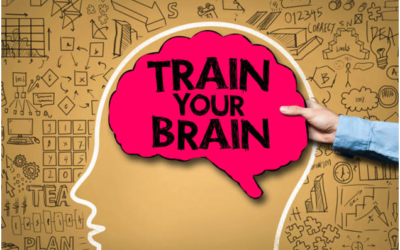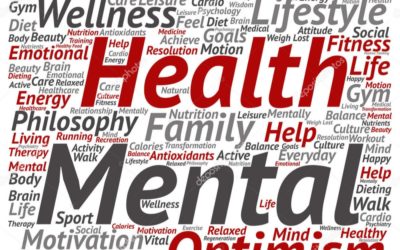Exercises
What is Brain Health?
Brain health refers to the ability to remember, learn, plan, concentrate and maintain a clear, active mind. Simply, brain health is all about making the most of your brain and helping reduce some risks to it as you age.
Brain health is completely regarded with the ability of mental fitness an individual possesses. Some are born mentally fit as they get this quality through genes while some make genuine efforts to keep their mind or brain healthy. But are the mental exercises enough to keep a brain healthy? Or is it a need to have physical exercises too for good brain health?
Here are the Best Physical Exercises for Brain Health:
- Aerobics is great for the body and brain. It not only improves brain function but also acts as a first aid kit on damaged brain cells. It is one of the best physical exercises for brain health.
- Walking, running, regular exercising or any athletic activity before going to work in the morning not only boosts brain activity but also prepares for mental stresses for the rest of the day. Early morning exercising also increases the retention of new information and better reaction to complex situations.
- Regular exercise for brain health should also include endurance exercises like running, swimming or biking, which fosters new brain cell growth and preserve existing brain cells.
- Strength training is not limited up to bodybuilders only. Working on heavy machinery or lifting weights not builds muscle and strengthens bone as well as it can boost brain power, improve mood, enhance concentration and increase decision-making skills.
- Few jumping jacks will help in brain improvement as well as help in relieving mental exhaustion.
Activities to improve Brain Function:
Activities to improve brain function include healthy brain exercises that promote better brain functioning:
1) Mental Stimulation:
Mental stimulation activities like reading, solving puzzles, maths, help in building up a brain. Try to work out or experiment with things that require manual dexterity as well as mental effort, such as drawing, painting, and other crafts as they can help in mental focusing.
2) Physical Exercise:
Research indicates using your muscles also helps your mind. Exercise also spurs the development of new nerve cells and increases the connections between brain cells (synapses) which result in brains that are more efficient, plastic, and adaptive, which translates into better performance.
Exercising also helps in lower blood pressure, maintaining sugar level, improving cholesterol levels and mental stress. Such activities not only help your brain but the heart too. Swimming, running, walking, warm-up are some of the best exercises for brain function.
3) Diet:
Good nutrition can help your body as well as mind.
4) Improving Blood Pressure and Blood Sugar:
Staying calm, lean, exercising regularly, lowering or omitting alcohol consumption, reducing stress and eating healthy foods will maintain or improve the blood pressure. The same things are applied for maintaining levels of blood sugar.
5) Avoid tobacco and alcohol:
Say strictly no to tobacco consumption in all forms. Excessive alcohol drinking is a major risk factor for dementia.
6) Have value for your emotions:
People who are anxious, depressed, sleep-deprived, or exhausted tend to score poorly on cognitive function tests. Poor scores don’t necessarily predict an increased risk of cognitive decline in old age, but good mental health and restful sleep are certainly important goals.
7) Protect your head:
Severe and minor head injuries with ignored diagnosed concussions raise the risk of cognitive impairment.
8) Be Social:
Increase your social network. Social networking leads to a lower risk of dementia and blood pressure. Social networking relieves fatigue and mental stress. It increases life expectancy too.
Brain and Behaviour Psychology:
The relation between brain and behaviour psychology is called biopsychology. Biopsychology is a branch of psychology that analyses how the brain, neurotransmitters and other aspects of our biology influence our behaviours, thoughts, feelings and expressions. Biopsychology has also connections with comparative psychology and evolutionary psychology.
Researchers or scientists were eager to understand how different parts of the brain had control over human behaviour. An early attempt understanding led to the development of pseudoscience known as phrenology. According to phrenology, certain human faculties could be linked to bumps and indentations of the brain which could be felt on the surface of the skull.
Scientists dismissed phrenology after getting cognisable of popularity. However, how certain parts of the brain controlled or were responsible for particular functions played a significant role in future research.
Neurotransmitters:
Neurotransmitters play a major role in biopsychology. They carry information between neurons and enable chemical messages to be sent from one part of the body to the brain, and vice versa. There are a variety of neurotransmitters that affect the body in different ways. For example, the neurotransmitter dopamine is involved in movement and learning. Excessive amounts of dopamine have been associated with psychological disorders such as schizophrenia, while too little dopamine is associated with Parkinson’s disease.
Brain Facts:
- A human brain processes about 70,000 thoughts every day, using 100 billion neurons that connect at more than 500 trillion points through synapses that travel 300 miles/hour.
- The signals that travel through these interconnected neurons form the basis of memories, thoughts, feelings and expressions.
- A brain determines every aspect of your life. Without the brain, there is no self and no awareness of the world.
- Throughout your life, your experiences create patterns of activity that explain how our brains code our thoughts, memories, skills and sense of self.
Related Blogs
Meditation for Mental Health and Wellbeing – Psychologie India
Meditation benefits our mental health in infinite ways. Trauma, anxiety, depression, unhelpful psychological patterns are each soothed through awareness. Meditation is a practice of becoming more aware in your day-to-day life. It is a moment-to-moment practice....
Brain Fitness: Important for Mental Health
Brain fitness is important for mental health, but what does that really mean? It simply means teaching the brain new skills and functions, including things like memory (ability to recall information), plasticity (the capacity to learn new tasks), and complex reasoning...
Nutritional psychiatry: What does it mean for you?
Think about it. Your brain is always "ON" means it has many things to think and worry about. It takes care of your thoughts and movements, your breathing and heartbeat, your senses — it works hard and continuous 24/7, even while you’re asleep. This means your...
How to Improve Brain Fitness?
What is Brain Fitness? In a way analogous to physical fitness, Brain Fitness is the state of brain health and mental well-being that makes you “fit” for life and work demands. It's more fundamental measure of the brain's ability to function efficiently and effectively...
What are you waiting for?
You can’t change the past, but by working together with a counselor, you will understand and resolve challenges in your life. Contact a counselor for relieving emotional distress and other cognitive health issues for a better tomorrow.











